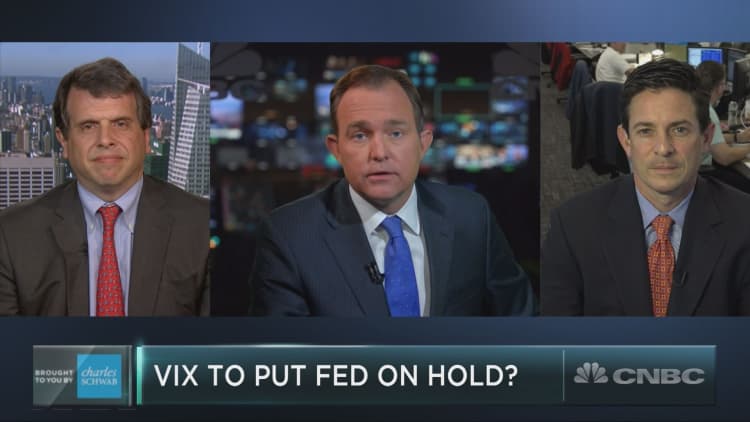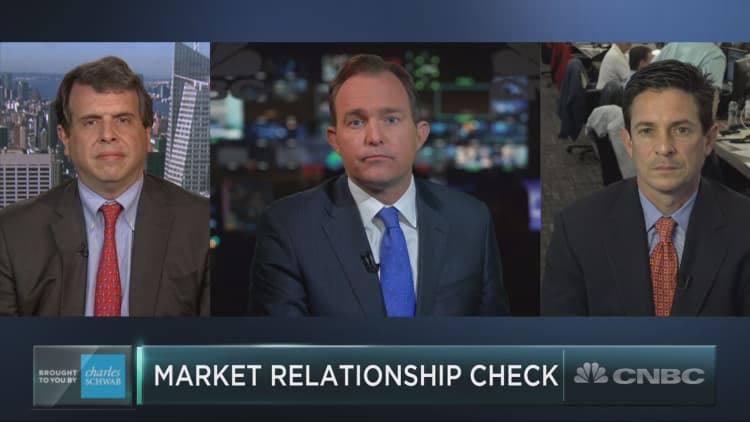



The Federal Reserve appears increasingly keen on a June rate hike, but some strategists believe that an increase in market volatility could throw a monkey wrench into their plans.
Based on recent market history, Convergex chief market strategist Nick Colas believes that if the CBOE Volatility Index (frequently known as the VIX) rises high enough, the Fed won't raise interest rates.
"If you're looking for a number the Fed may be looking at, I think you need to go back to last year and look at the August, September time frame," he said on CNBC's "Trading Nation" on Friday. "The Fed was really ready to move in September but got dissuaded by the sudden spike in volatility around Chinese equities and the Chinese economy," when the VIX rose as high as 40.
The VIX currently sits around 15, indicating that investors aren't showing a great predilection to protect against large downside moves. And while he sees no reason for the index to spike, Colas believes that if the VIX hits between 20 and 35, that could act as a "trigger" for the Fed to change its mind.
Read MoreMarket's early reaction to a Fed June rate hike is NO!
Chad Morganlander, portfolio manager at Stifel Nicolaus, thinks that upcoming events in Britain could cause the VIX to rise, perhaps even hitting the 30 to 40 levels mentioned.
"I think that volatility is going to start kicking in after the Brexit vote," he said. "On the basis of global financial conditions tightening, the things [the Fed seems] to be watching there are not only credit spreads here in the United States, but also emerging market currency reaction to the dollar strength as well as commodity prices."
The dollar could also render the market more volatile over the next few months from a domestic standpoint, especially in light of its recent rise following the Fed's release of its April meeting minutes.
"If you get a 5 to 6 percent rise in the dollar and then all of the sudden you start to see the commodities complex shutter on the back of that dollar rise as well as credit spreads start to widen out again, then you're going to get the equity markets starting to get a little bit more hostile, hence the reason why we're talking about the VIX," Morganlander said.





